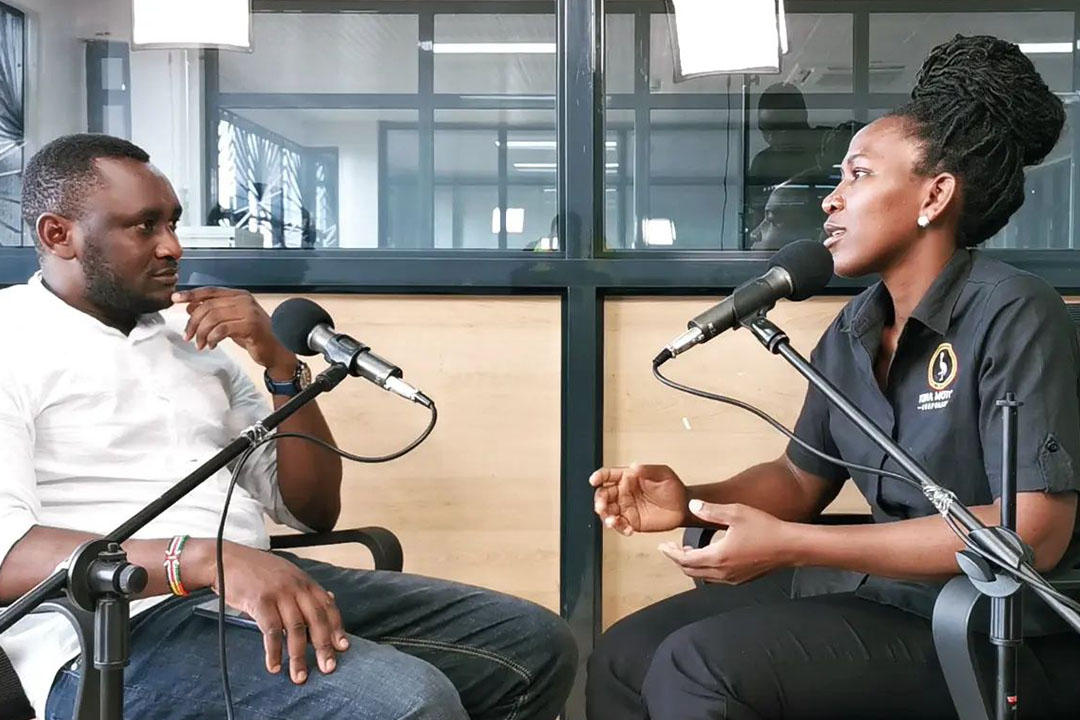However, our podcast was widely received, and every new episode eclipsed its predecessor in reach. With this realization, JamLab trainers and mentors assisted us with two key issues – audience segmentation and business modelling. It emerged from these weekly drills that talking to the right audience can break thick deadlock and deliver quick returns.
During our weekly meetings, we did a comprehensive stakeholder mapping across East Africa for partners with mutual interest, a wider footprint, and solid financial muscle to help us scale.
In September, Africa No Filter and the Mastercard Foundation teamed up to furnish us with Shs$5,000 to produce an 8-part podcast series on individuals and organizations creating ground-breaking solutions to climate change. Through this project, we reached over 600,000 people through different platforms, and our podcast was listened to across 12 different countries, excluding Uganda.
The Africa China Reporting Project at the Wits Centre for Journalism also provided a £1250 story grant to report on the effects of sand mining in one of Uganda’s largest wetlands.
JamLab also honed our skills in pitching, competitor and business environmental analysis, and shared resources that can help small organizations like Last Drop Africa secure funding and grants to support our work.
Looking over our story thus far in the JamLab Accelerator Programme, it is gratifying to see what we learned in class play out in the industry. This has emboldened us to innovate, set ourselves more ambitious but smart targets, and pursue growth beyond the Ugandan borders.

